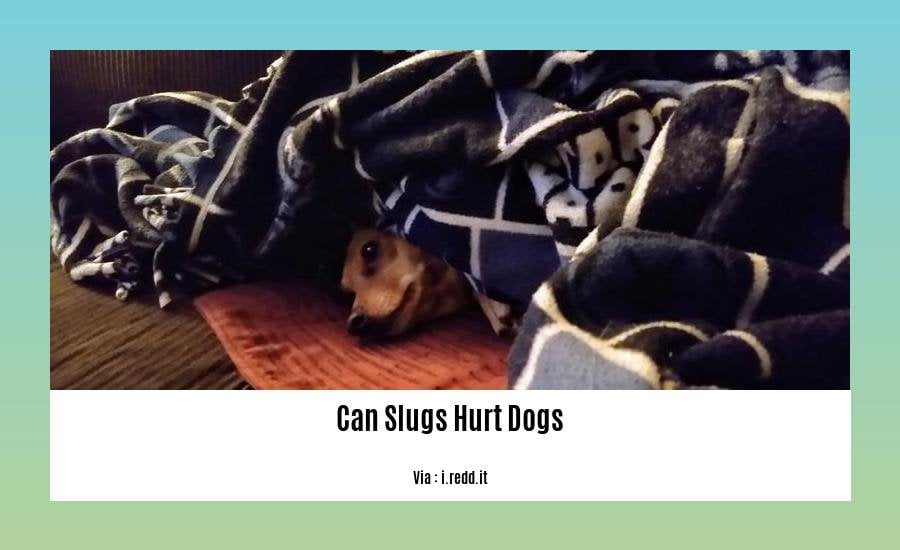Slugs, those slimy creatures that creep around our gardens, may seem harmless, but they can pose a serious threat to our canine companions. While slugs themselves aren’t poisonous, they can carry a dangerous parasite called lungworm. This guide delves into the hidden dangers of slugs and provides essential tips for safeguarding your beloved pet.

Can Slugs Hurt Dogs?
Dogs are naturally curious and often explore the world through their mouths. Unfortunately, this can lead to trouble when it comes to slugs. Here’s why:
- Lungworm: Slugs can carry lungworm larvae, which are parasitic worms that can infect dogs upon ingestion. These larvae mature into adult worms within the dog’s respiratory system, leading to a condition known as lungworm disease.
- Stomach Upset: Even if a slug isn’t carrying lungworm, its slime can cause digestive upset in dogs. This might manifest as vomiting, diarrhea, or a decreased appetite.
The Hidden Danger Lurking in Your Backyard: Lungworm in Slugs and its Impact on Dogs
Lungworm infection can have serious consequences for dogs, potentially leading to long-term health problems or even death if left untreated.
What Exactly is Lungworm, and Why Should I Be Worried?
Lungworm is a type of parasitic worm that lives in the lungs and heart of infected animals, primarily slugs and snails. Dogs become infected by accidentally ingesting these infected creatures (or even just their slime) while exploring their surroundings.
Once inside a dog, lungworm larvae migrate through the body, eventually settling in the heart and lungs. As they mature and reproduce, they can cause significant damage to these vital organs.
What are the Signs of Lungworm Infection in Dogs?
Lungworm infection can manifest in a variety of ways, and symptoms may be subtle in the early stages. Be vigilant and watch for these potential warning signs:
- Respiratory Issues: Coughing (especially a persistent, dry cough), difficulty breathing, rapid breathing, and wheezing.
- Lethargy and Weakness: Decreased energy levels, reluctance to exercise, and overall weakness.
- Appetite Changes: Loss of appetite, weight loss, or changes in eating habits.
- Blood Clotting Problems: Lungworm infection can interfere with blood clotting, potentially leading to excessive bleeding from minor injuries, nosebleeds, or pale gums.
- Other Symptoms: Vomiting, diarrhea, and general malaise (feeling unwell).
To find out if slugs can harm dogs, click here.
Discover the truth about slugs and their potential to harm dogs! Visit here for more information.
Curious if turtles and tortoises can live together? Click here to explore this intriguing topic.
Uncover the mysteries of turtle and tortoise mating habits by clicking here.

Protecting Your Canine Companion: Effective Strategies for Preventing Slug Encounters and Lungworm Transmission
Preventing lungworm infection is crucial for protecting your furry friend. Here are some practical steps you can take:
Environmental Control:
- Slug Patrol: Regularly inspect your yard and remove any slugs or snails you find, especially in areas where your dog spends time.
- Keep It Tidy: Eliminate slug hiding spots by keeping your yard clean and free of debris like leaf piles, overgrown vegetation, and damp wood.
- Strategic Planting: Consider adding slug-repelling plants to your garden, such as ferns, lavender, or rosemary.
Dog Management:
- Supervise Outdoor Time: Keep a close eye on your dog when they’re outside, especially in areas known to harbor slugs and snails.
- Leash Training: Walk your dog on a leash in areas where slugs might be present to prevent them from scavenging.
- Bring Bowls Inside: Don’t leave your dog’s food and water bowls outside overnight, as this can attract slugs.
Preventative Medications:
- Talk to Your Vet: Consult your veterinarian about preventative medications that can help protect your dog from lungworm and other parasites. They can recommend the best option based on your dog’s lifestyle and risk factors.
Early Detection is Key!
If you suspect your dog may have ingested a slug or is exhibiting any signs of lungworm infection, contact your veterinarian immediately. Early diagnosis and treatment are crucial for a positive outcome.
By taking these preventative measures and staying vigilant, you can help keep your beloved pet safe from these hidden dangers and ensure they stay happy and healthy for years to come.












